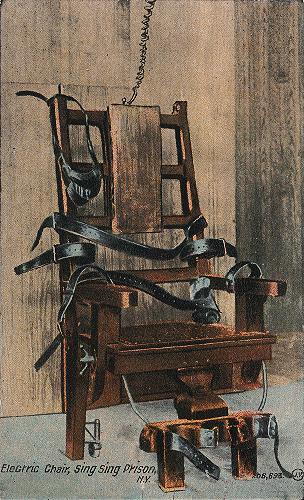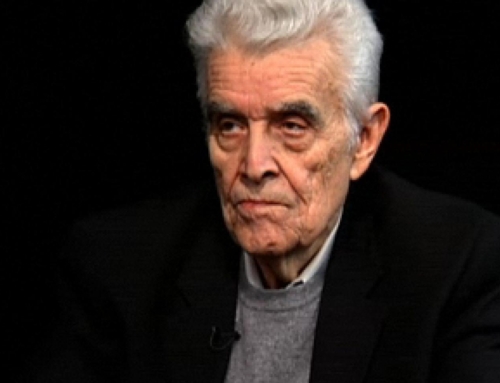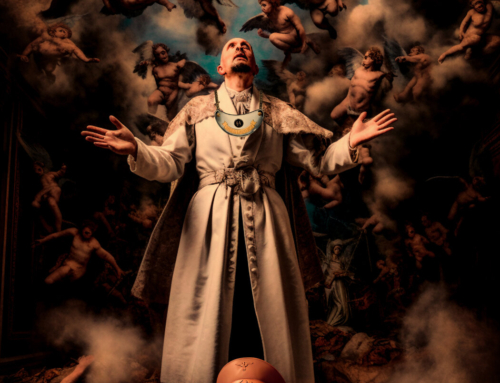One of the progressive Catholics’ most important tools is “dialogue.” If they want to change some time honored aspect of the Catholic religion like male only ordination or traditional marriage they urge “dialogue”.
However, when they consider a matter to be settled, dialogue is not allowed–even if a Pope has said that it is an area where individual conscience is respected and no official dogma has been decreed. So, for example, if anyone wishes to have a dialogue about capital punishment it would seem that the dialogue box is closed.
This came to my attention with a recent book By Man Shall His Blood Be Shed. by Edward Feser and Joseph Bessette. These two reputable scholars think that the church’s increasingly dogmatic stance against the death penalty is misguided. They have written a book which examines the sacred Scriptures, the church’s historic teaching, the philosophical and ethical arguments and combined this with real life stories of both the victims of crime and the criminals facing death row.
I should say my own stance is not theirs, and this is not a post about capital punishment. It is a post about dialogue and discussion in the church on issues that are open ended. My own view is simply that of the catechism:
Assuming that the guilty party’s identity and responsibility have been fully determined, the traditional teaching of the Church does not exclude recourse to the death penalty, if this is the only possible way of effectively defending human lives against the unjust aggressor.
If, however, non-lethal means are sufficient to defend and protect people’s safety from the aggressor, authority will limit itself to such means, as these are more in keeping with the concrete conditions of the common good and more in conformity to the dignity of the human person.
Today, in fact, as a consequence of the possibilities which the state has for effectively preventing crime, by rendering one who has committed an offense incapable of doing harm – without definitely taking away from him the possibility of redeeming himself – the cases in which the execution of the offender is an absolute necessity “are very rare, if not practically nonexistent.”6
That seems the right balance in the debate and I don’t understand why Pope Francis feels he has to push things further as he seems to be doing according to this article. Edward Feser has commented on the pope’s speech here, questioning whether the pope can actually change church doctrine unilaterally. As we are getting accustomed to, the pope’s comments lack precision and his increasingly Anglican-style ambiguity allows for varying interpretations.
However, the debate on capital punishment is a good one to have and there are strong arguments to be made on both sides. Pope St John Paul strengthened the church’s opposition to the death penalty as did Benedict XVI, but Benedict (as Ratzinger) also said the question remained open and it was permissible to disagree with this teaching saying here, “There may be a legitimate diversity of opinion even among Catholics about… applying the death penalty”
But instead of a vigorous debate or dialogue progressives seem intent on shutting down the discussion. Triumphalist Twitter comments on the issue crowing, “Rome has spoken. That settles it!” don’t sound very encouraging to dialogue. Although I am not a death penalty advocate, I reviewed Feser and Bessette’s book in a balanced way for a centrist Catholic website, but as far as I know the review has not been published. Is dialogue on this issue to be desired or shall we all duck for cover as the “Roma locuta” flags are being waved and we are expected to march in lock step?
I am a convert, and I became a Catholic because I believed in papal authority. But the papal authority I believed in was consultative–the pope always speaking not his own opinion, but the mind of the church, and when there were matters still being decided, that voice was silent while debate, discussion and dialogue continued.
Whether we like it or not, Bessette and Feser have made strong points, but their arguments are not being addressed with any seriousness or sound reasoning. There are plenty of people who can answer Bessette and Feser, and they should do so.
The debate and dialogue would be healthy, but when the progressive media megaphone just struts their second hand papal authority it is embarrassing.







Leave A Comment
You must be logged in to post a comment.